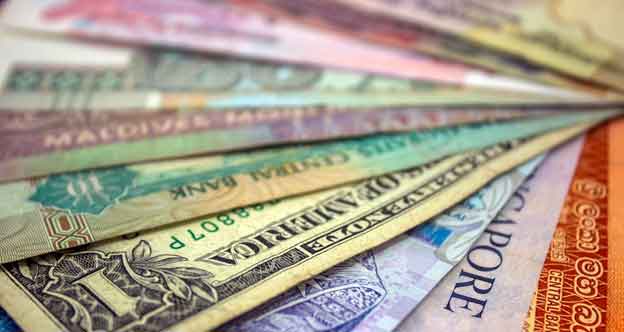Purchasing Foreign Real Estate and FAPI Taxes
Allan Madan, CPA, CA

The escalating housing market in Canada is compelling investors to explore real estate opportunities beyond their borders, such as in the US, Europe, and Asia. These investors often acquire foreign properties through intermediary entities known as foreign corporations. This preference stems from the liability protection and simplified compliance with local laws and regulations such corporations offer.

However, Canadian investors utilizing foreign corporations may face significant tax implications due to the Foreign Accrual Property Income (FAPI) Rules. The FAPI tax can substantially reduce after-tax investment returns, potentially diminishing the attractiveness of foreign real estate investments.
This article aims to provide a clear understanding of the FAPI Rules, empowering investors to make informed decisions about the viability of foreign real estate investments.
Key Definitions
Foreign Affiliate: A foreign affiliate is a corporation located in another country in which a Canadian business or person has a financial interest. Specifically, for tax purposes in Canada, a foreign affiliate is a company where a Canadian taxpayer owns at least 1% of the shares of the foreign company and owns at least 10% of the foreign company with related (i.e. family) parties.
Controlled Foreign Affiliate: A controlled foreign affiliate is a non-resident corporation where a Canadian resident owns at least 51% of the voting shares. Through their majority ownership, the Canadian resident controls the corporation’s activities.
Foreign Accrual Property Income: FAPI for short, is passive income earned by a controlled foreign affiliate. Passive income includes interest, dividends, rents and royalties. The Canadian owner of a controlled foreign affiliate must include the FAPI earned in the year in his Canadian taxable income.

The Importance of Foreign Affiliates
Canadians who own shares of a foreign affiliate or controlled foreign affiliate must file foreign reporting forms with the CRA, pay Canadian taxes on a foreign corporation’s passive income and deduct foreign dividends from their taxable income. Here are three factors to consider regarding your tax obligations.
- Filing Requirements (Form T1134): The Canadian owner of a foreign affiliate or controlled foreign affiliate must file Form T1134 with the Canada Revenue Agency (CRA) annually. Failure to file this form can result in a penalty of $2,500.
- Foreign Accrual Property Income (FAPI): If you own a controlled foreign affiliate, you must calculate the Foreign Accrual Property Income (FAPI) each tax year and include it in your Canadian taxable income.
- Tax Deduction on Dividends: You may be able to claim a tax deduction for dividends received from a foreign affiliate or controlled foreign affiliate, depending on the type of income the affiliate earned.
Are You Involved with a Foreign Affiliate?
Here are some common situations Canadians may face. Read on to see if any apply to you.
Example 1: Foreign Affiliate – Indian Corporation
Sam, a Canadian resident, owns a 1% stake in a family corporation based in India. His family members living in India own the remaining shares (99%). The Indian Corporation is a foreign affiliate because Sam owns at least 1% of the shares in the Indian Corporation and at least 10% of the shares with his family members.
Example 2: Foreign Affiliate – US Corporation
Matthew, a Canadian resident, owns 20% of a US Corporation. Matthew’s business partner who is not related to Matthew owns the remaining 80% of the shares. The US Corporation is a foreign affiliate of Matthew because Matthew owns at least 10% of the shares of the US Corporation.
Example 3: Controlled Foreign Affiliate – Singapore Corporation
Janet, a Canadian resident, owns 100% of the Singapore corporation. The Singapore corporation is a Controlled Foreign Affiliate because Janet owns more than 50% of the shares in the Singapore corporation.
Example 4: Controlled Foreign Affiliate – Costa Rica Corporation
Jennifer, a Canadian resident, owns a 51% stake in a Costa Rica Corporation. The Costa Rica Corporation earns $100,000 each year from rental properties located in Costa Rica. The Costa Rica Corporation is a Controlled Foreign Affiliate because Jennifer owns more than 50% of the shares in the Costa Rica Corporation.
Calculating Taxes on Foreign Accrual Property Income

Canadian residents who own shares of a Controlled Foreign Affiliate must include the Foreign Accrual Property Income (FAPI) in their taxable income. The FAPI represents the net rental income (or other investment income) the foreign corporation earns in the year.
The relevant tax factor – the calculation for finding the FAT – is 1.9 for Canadian individuals and Canadian Controlled Private Corporations (CCPC). This number is subject to change, so ensure you have the correct value depending on the year you claim the deduction.
The Canadian individual or CCPC can claim a deduction equal to the relevant tax factor (i.e. 1.9) multiplied by the foreign accrual tax. This deduction reduces the net amount of FAPI included in the Canadian resident’s taxable income.
Example 1: Cayman Islands Rental Corporation
For example, assume Lisa’s Cayman Islands Corporation pays corporate income tax at a 10% rate on $50,000 of net rental income earned in the year. The Canadian income tax payable on the FAPI is calculated as follows:
| FAPI | $50,000 |
| FAT Deduction (1.9 x $5,000) | ($9,500) |
| Net FAPI | $40,500 |
| Lisa’s Marginal Tax Rate | x 50% |
| Canadian Income Tax Payable | $20,250 |
Lisa must include $40,500 of net FAPI in her taxable income. Assuming Lisa is in the highest tax bracket (50%), she will pay $20,250 in personal income tax to the Canada Revenue Agency plus $5,000 in corporate income tax to the Cayman Islands Tax Authority. The total tax burden comes to $25,250 ($20,250 Canadian Tax + $5,000 Cayman tax), or 50.5%!
| Canadian Income Tax | $20,250 |
| Cayman Islands Income Tax | $5,000 |
| Total Income Tax Payable | $25,250 |
Lisa can receive tax-free dividends from the Cayman Islands company up to the amount of the net FAPI, which equals $40,500. This is because Lisa has already paid tax on the FAPI so it’s only fair the dividends are tax-free. Otherwise, Lisa would be double taxed.
Example 2: US Rental Corporation
Jatinder, a Canadian tax resident, purchases a rental property in Austin, Texas through a US C-corporation. The income and expenses are as follows:
| Rental Income | $200,000 |
| Property Tax | $18,000 |
| Utilities | $15,000 |
| Property Management Fees | $30,000 |
| Insurance | $15,000 |
| Mortgage Interest | $12,000 |
| Depreciation | $10,000 |
| Profit | $100,000 |
For simplicity, assume the depreciation expense is the same amount under Canadian and US tax regulations.
How much tax will Jantinder pay on $100,000 of rental profits? The US corporate tax rate is 21% and therefore the US corporate tax payable is $21,000 ($100,000 x 21%). The Canadian personal tax payable is calculated as follows:
| FAPI | $100,000 |
| FAT Deduction (1.9 x $21,000) | ($39,900) |
| Net FAPI | $60,100 |
| Jatinder’s Marginal Tax Rate | x 50% |
| Canadian Income Tax Payable | $30,050 |
Jatinder must include $60,100 of net FAPI in his taxable income. Assuming Jatinder is in the highest tax bracket (50%), he will pay $30,050 in personal income tax to the Canada Revenue Agency plus $21,000 in corporate income tax to the IRS. The total tax burden comes to $51,050 ($30,050 Canadian Tax + $21,000 US tax), or 51%!
| Canadian Personal Income Tax | $30,050 |
| US Corporate Income Tax | $21,000 |
| Total Income Tax Payable | $51,050 |
Jatinder can receive tax-free dividends from the U.S. company up to the amount of the net FAPI, which equals $60,100.
FAPI and Surplus Pools

Surplus pools refer to the different types of earnings accumulated by a foreign affiliate or controlled foreign affiliate that are distributed to the Canadian company as dividends. These surplus pools are exclusively available to Canadian Controlled Private Corporations and not individual investors. These surplus pools categorize the income based on how and where it was earned, which affects how the dividends are taxed in Canada.
There are three main types of surplus pools:
Taxable Surplus: This pool includes passive income, such as interest, rent, royalties, and other types of income that are not directly related to the active operations of the foreign affiliate. When a CCPC receives dividends from the taxable surplus, they are subject to tax in Canada, but foreign taxes paid can often be deducted to reduce the overall tax burden.
Exempt Surplus: This pool consists of income from active business operations in a country that has a tax treaty or tax information exchange agreement (TIEA) with Canada. Dividends paid from the exempt surplus are generally tax-free when received by a Canadian parent company because the income has already been taxed in a foreign jurisdiction with which Canada has an agreement.
Hybrid Surplus: This pool includes income from capital gains earned by the foreign affiliate, usually from selling assets. How dividends from hybrid surplus are taxed in Canada depends on specific rules and the nature of the capital gains.
Surplus pools are important because they determine the tax treatment of dividends received by a Canadian company from its foreign affiliate. Properly calculating and managing these pools can help reduce double taxation and optimize tax outcomes.
Example 1: Canadian Holding Company – FAPI Calculation
In this example, you will learn how to calculate FAPI for a Canadian holding company, Canadian corporate tax payable on dividends received, and the after-tax cash available to the shareholder.
Anne, a Canadian resident, owns 100% of a Canadian holding corporation. The holding company owns 100% of the shares in a Hong Kong Corporation. The Hong Kong Corporation earns $100,000 in rental income and pays corporate income tax of $10,000 (i.e. 10% x $100,000) to the Hong Kong government.
| Gross FAPI | $100,000 |
| FAT Deduction (1.9 x $10,000) | ($19,000) |
| Net FAPI | $81,000 |
| Corporate Income Tax Rate on Rental Income | x 50.17% |
| Corporate Tax Payable | $40,638 |
| RDTOH ($81,000 x 30.67%) | (24,843) |
| Net Corporate Tax Payable | $15,795 |
The Canadian holding corporation must include the net FAPI of $81,000 in its taxable income. The corporate income tax rate applicable to rental income, including FAPI, is 50.17%. The resulting corporate income tax payable equals $40,638 ($81,000 x 50.17%).
After deducting the Refundable Dividend Tax on Hand (RDTOH) – which is 30.67% – the net corporate tax payable is $15,795 or 15.79%.
Example 1 Continued: Canadian Corporate Tax on Dividends Received
Continuing Anne’s example, assume that the Hong Kong corporation pays a dividend of $90,000 to the Canadian holding corporation. How much tax will Anne’s Canadian corporation pay on the dividend received?
| Dividend From Hong Kong Corporation | $90,000 |
| 113(1)(B) Deduction ($10,000 X (1.9 – 1)) | ($9,000) |
| Net FAPI Previously Included in Income | ($81,000) |
| Taxable Income | $0 |
| Canadian Corporate Income Tax Payable | $0 |
The Canadian holding corporation must include the gross amount of the dividend of $90,000 in its income but it can claim a tax deduction of $9,000 under paragraph 113(1)(b) of the Canadian Income Tax Act because the dividend is paid from the Hong Kong Corporation’s taxable surplus. The 113(1)(b) tax deduction is calculated by multiplying the Hong Kong corporate income tax payable of $10,000 by the relevant tax factor minus 1, (i.e. 1.9 – 1).
The Canadian corporation can also claim a tax deduction for the net FAPI previously included in its income, which equals $81,000. After this deduction, the Canadian corporation’s taxable income is reduced to $0. Therefore, the Canadian corporate income tax payable is $0 in respect of the dividends received.
Example 1 Continued: Cash Available for Distribution / Dividends
How much in cash dividends can Anne receive from her Canadian corporation after deducting the Hong Kong corporate income tax and Canadian corporate income tax from her company’s rental profits of $100,000?
Anne’s Hong Kong corporation started with rental profits of $100,000. After paying corporate tax to the Hong Kong and Canadian governments and adding the corporate tax refund from the RDTOH account, the total cash dividend available to Anne is $74,213.
| Rental Profit | $100,000 |
| Less: Hong Kong Corporate Tax | ($10,000) |
| Less: Canadian Corporate Tax | ($40,630) |
| Add: RDTOH | $24,843 |
| Cash Available to Anne | $74,213 |
Example 1 Continued: After-Tax Cash in Anne’s Pocket
Anne receives a dividend of $74,213 from her Canadian corporation. How much in personal taxes will Anne pay? This is calculated as follows:
| Dividend Received | $74,213 |
| Marginal Tax Rate (Eligible Dividends) | x 39% |
| Anne’s personal taxes | $28,943 |
After subtracting the personal taxes Anne pays to the CRA, she is left with $45,270. The net effect of all of these taxes is that Anne’s total burden of tax is 54.7%!
| Dividend Received | $74,213 |
| Less: Anne’s personal taxes | $28,943 |
| After-tax cash in Anne’s Pocket | $45,270 |
Anne started with a rental profit of $100,000 earned by her Hong Kong Corporation, but she only has $45,270 left in her pocket!
Conclusion

At first glance, investing in foreign real estate might appear lucrative due to potentially high pre-tax profits relative to the initial investment. However, it’s crucial to consider the impact of the Foreign Accrual Property Income (FAPI) tax. This tax can significantly increase the overall tax burden, potentially exceeding 50%.
Before deciding to invest in foreign real estate through a foreign corporation, it is essential to consult with a tax professional. They can help you understand the relevant tax implications, including FAPI, taxation of foreign dividends, and foreign reporting requirements. This consultation can provide valuable insights and ensure that you make an informed decision that aligns with your financial goals.
Disclaimer
The information provided on this page is intended to provide general information. The information does not take into account your personal situation and is not intended to be used without consultation from accounting and financial professionals. Allan Madan and Madan Chartered Accountant will not be held liable for any problems that arise from the usage of the information provided on this page.



